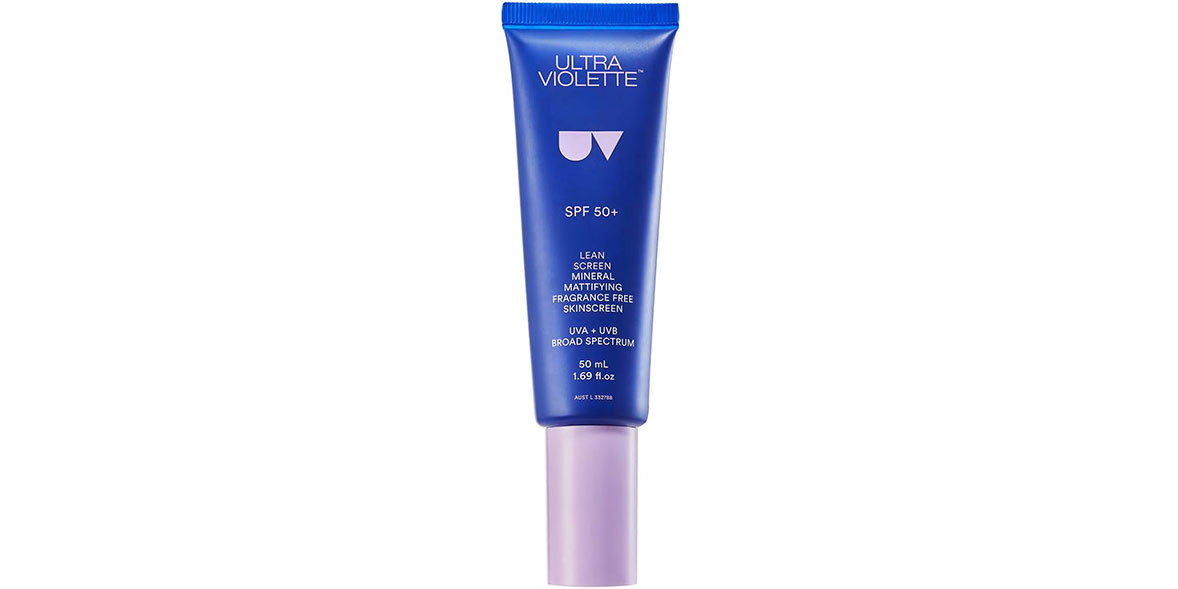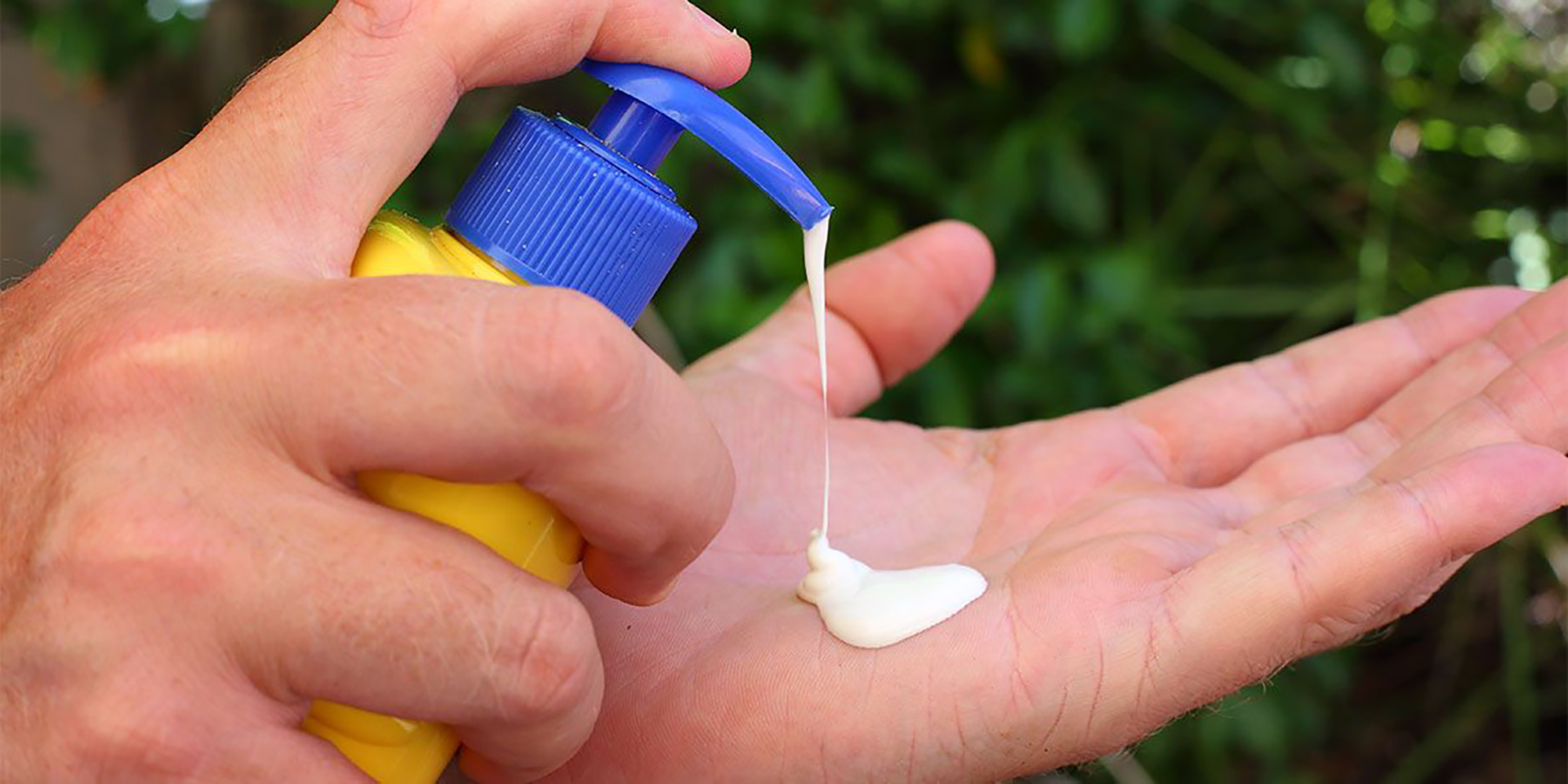
Healthy living
Use our expert advice and recommendations to live your best life every day.
Get startedBy clicking a retailer link you consent to third-party cookies that track your onward journey. This enables W? to receive an affiliate commission if you make a purchase, which supports our mission to be the UK's consumer champion.

A good sunscreen is an essential part of staying protected in the sun, but we've uncovered two that failed key safety tests in our 2025 sunscreen investigation.
We tested 15 sun creams, covering big brands, own-labels and supermarket options from SPF30 to SPF50+, and two products failed our tests.
Ultrasun Family SPF30 lotion failed to match the minimum required UVA level in our test, while Morrisons SPF30 sun lotion didn't meet the claimed SPF level.
There has also been a product recall in Australia of the Ultra Violette Lean Screen SPF 50+ Mattifying Zinc Skinscreen, after it failed to meet required test standards.
From the 13 products that passed our tests, we uncovered seven Best Buy sun creams and two Great Value options worth snapping up now.

Use our expert advice and recommendations to live your best life every day.
Get startedEat well, live better, stay healthy – sign up to our free monthly Food & Health newsletter for the latest insights delivered straight to your inbox

These products each failed a key sun protection test in our 2025 tests, so we recommend you avoid them.
We test sunscreens to approved British and international standards, in independent labs. Any product that fails is retested to confirm the results. If it fails either UVA or SPF tests twice, it's a Don't Buy.

This sun cream spray failed our SPF tests, which check whether the product provides the claimed level of protection from UVB rays. We tested it twice, and it failed both times. It did pass our UVA tests, though.
We informed Morrisons of our results, and it told us that it’s looking closely at the data and working with its supplier to carry out additional independent testing.

This pricey product failed our UVA test. It didn't meet the minimum required UVA level for an SPF30 product in either the initial or repeat test.
It did pass our SPF test, but as it failed on the UVA front, we can't recommend it.
We contacted Ultrasun about the results. Ultrasun says it disputes our findings, stating:
‘Ultrasun is fully confident in our testing protocols. As an independent brand delivering very high UVB and UVA protection options for over 30 years, our detailed testing processes continue to not only meet but surpass industry standards.
Our chosen testing protocol is one of the strictest available, and our UVB and UVA filters are tested both in-vitro and in-vivo. We conclusively support the results of our independent tests which found the Ultrasun Family SPF30 reached a UVB-SPF in vivo of 31.4 and a UVA-PF in vitro of 13.1, which equates to a 92% UVA absorbance.’
For the full list of sun creams that failed our tests, including any from previous years that are still on sale, see our guide to Don't Buy sun creams to avoid.
Choice is an Australian consumer organisation that, much like Which?, carries out independent product testing and acts on behalf of the consumer.
It recently carried out sunscreen tests in June and discovered that 16 of the 20 tested products failed the SPF tests.

One of the sunscreens - Ultra Violette Lean Screen SPF 50+ Mattifying Zinc Skinscreen - returned a test result that showed the SPF was 4, when it should have been more than 50.
Like Which?, Choice uses accredited test labs, although it tests according to the Australian standard. However, Ultra Violette initially disputed Choice's findings, suggesting the low result was due to 'human error' or a 'mix-up of samples'.
However, in August, Ultra Violette announced that it was recalling its Lean Screen SPF 50+ as its own testing had also revealed that SPF results were inconsistent, with some results coming back as providing SPF 4.
Anyone who has bought Lean Screen since 1 January 2023 should stop using the product and complete a form on the Ultra Violette website before 30 September 2025.
The affected batches are: A1399, A1702, A1702B, A1705, A1961, A1961C, A1981, A2049, A2057, A2127, A2144, A2144A, A2144B, A2360, A2361, A2453, A2453A, A2453B, A2454, A2454A, A2455, A2550.
Ultra Violette states that this recall is only for Lean Screen, and other products in its range are unaffected.
For more information, see the statement on the Ultra Violette website.
When results such as those from Ultra Violette are revealed, it can be difficult to know where to turn or what products you can trust.
However, you can trust Which? and its testing methods. We use industry-standard tests and always reveal if a product has failed SPF or UVA tests by publishing the results free online for everyone to see.
Read on for our full list of passed products from the testing we carried out in June 2025, as well as two Great Value options that won't break the bank.
Why you can trust us: at Which? we're free from manufacturer and retailer influence. Find out more about our impartiality and how your support helps us to stay editorially independent
There's no doubt that sun lotion can be pricey, especially if you've got lots of family members to cater for.
However, our testing shows there's no need to splash the cash to get effective protection. We tested supermarket and own-label products that protect skin well for less than big-brand rivals.
Lidl and Aldi are our top recommendations for good budget sun protection this summer. Both passed key sun safety tests and are Great Value picks, thanks to their low prices compared to rivals.

If you want SPF30, look for Lidl's Cien Sun Spray SPF30 (£3.79/200ml), which our testing panel thought was easy to apply and smelled great.

Below, you can see all the products that have passed our independent 2025 sunscreen tests.
To achieve a Which? Test Pass, a sunscreen has to pass both our UVA and UVB tests, which are run to British and international approved standards for sun creams in an independent lab.
Great Value products are 20% or more cheaper than the average price per 100ml of the products on test.
Best Buys are our top sun cream picks, and this information is exclusive to full Which? members, who support our testing and wider mission to help consumers. These products not only pass sun protection tests but also score highly for application.
You'll find products we tested in previous years that are still available, unchanged, on our sun cream reviews page. Don't Buys are flagged here with a big yellow 'safety alert' badge, and in our best sun creams guide. Anything that doesn't have a safety alert or Don't Buy notice has passed our tests.
Best mosquito repellents – our brave testers hold their hand in a box full of mosquitoes for more than 8 hours to discover the sprays that will protect you effectively from bites

Our sun cream tests are completely independent. We test to British and internationally agreed test standards for sunscreens, used by manufacturers and other consumer organisations in the UK and across the EU. And we do it in independent labs, whose identity we keep secret to protect the independence of our testing.
The test standards set out strict methodology for how sunscreen is tested, including how much is applied and in what way. Each product is tested using the same method.
For each product, we will test up to three samples to confirm the results. If a product fails, we'll retest with a second sample. If it passes, we'll test a third time to determine the final result.
We select popular brands from a range of big-name retailers, aiming for the widest possible market coverage. However, as sunscreen testing is extremely expensive, we can only test a limited selection. We test the types that are most popular, but with some variation each year, to enable us to cover a broader range of options.
For example, this year we included SPF50+ adults' products, as it's a category that is becoming more popular and widely used.

Sun cream is applied to a volunteer's back, and we then shine a UVB lamp on the area, noting at what point the skin begins to go red.
We compare the smallest amount of UVB needed with and without sunscreen for that to happen. The SPF rating is based on the difference between the two points.
Our UVA test is carried out using a spectrophotometer to check the amount of UVA absorbed by the sun cream.
The EU recommendation for UVA protection requires sun creams to offer a UVA protection factor that is at least a third of their rated SPF, and this is what we test for.
This means that an SPF30 product should have a UVA protection factor (UVAPF) of 10 or more.

A good suncream is only good if you will actually use it. So we check by asking a panel of at least 10 people to try out each sun cream and rate it on how easy it is to apply and how easily it absorbs into the skin.
We ask them to rate factors including the greasiness, any residue left on the skin and tackiness after applying, as well as whether or not it smells pleasant.
Products that score five stars for overall application and pass our UVA and UVB tests are Best Buys.
Find out more about how we test sun creams, including our sustainability assessments, and check out our sun cream application tips, including five quick wins from our sunscreen scientific adviser, Dr Neal Rimmer, in our guide to common sunscreen mistakes.